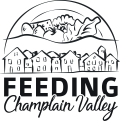
Welcome to the NEEP Community-Driven Clean Transportation Resource Center – your hub for community-led, sustainable transportation solutions.
NEEP is partnering with the Vermont Clean Cities Coalition, Clean Transportation Coalition of Western Connecticut, Vital Communities, Upper Valley Lake Sunapee Regional Planning Commission, Champlain Valley Office of Economic Opportunity, and others on a DOE-funded clean transportation project. This initiative supports four rural and urban communities to develop community-driven strategies that bolster mobility and support local economic development.
PROJECT PARTNERS | ||

| 
| |

| 
| |
The project team is coordinating across three states and working closely with these target communities to create a replicable framework for developing, supporting, and advancing locally-relevant transportation implementation plans. The project will empower communities in Vermont, New Hampshire, and Connecticut to conduct transportation needs assessments, determine transportation priorities, and formulate actionable plans aimed at enhancing mobility and promoting transportation infrastructure expansion.
Based on insights from stakeholder meetings, surveys, and local engagement efforts, NEEP and partners will share general resources and findings in this Online Resource Center. This hub will offer training, educational sessions, and technical support to empower localities in achieving their community-driven transportation goals.
EV 101
Start here for an overview of EVs and planning for vehicle electrification.
Electric Vehicle Knowledge Hub
Gas and Electric Vehicle Comparison Handout
Charging Electrification Fact Sheet
EV Safety & Reliability Fact Sheet
Identity Misalignment Fact Sheet
EV Affordability Fact Sheet
Providing Compensation
Community members may feel survey fatigue, struggle to afford time off or childcare for events, or feel that their input is not highly valued. Paying them for their input and lived experience can help alleviate these factors and build trust. If you’re interested in learning how to compensate community members who participate in your project, this section details how NEEP decided to do so.
Compensation Plan for Community-Based Organizations and Individual Community Members
Compensation Plan Case Study
Conducting Transportation Audits/Needs Assessments
Identifying specific community needs and priorities takes time and extensive engagement. Substantive engagement is critical for community-driven planning because it ensures that plans actually meet community members’ wants and needs and provides them with actionable solutions. Below are sample surveys and listening session guides that the project team used to assess their communities’ needs.
Sample Transportation Audit - Live Green Connecticut (Bridgeport survey)
Sample Transportation Audit - Live Green Connecticut (Winsted survey)
Sample Transportation Audit - UVSLRPC (Vital Communities survey)
Sample Listening Session Guide - Vermont Clean Cities Coalition
Sample Transportation Audit Reports
To sum up the findings of their transportation audits, the project team created audit reports for the four target communities. In them, they detail what they heard through surveys and listening sessions and identify community-driven high-priority action items for improving mobility and electrifying transportation.
Bridgeport Transportation Audit Report
Upper Valley Transportation Audit Report
Vermont Transportation Audit Report
Winsted Transportation Audit Report
Workforce Development
Workforce is a key factor for the adoption of EVs, because mechanics, technicians, charging installers, first responders, code officials, and more are all involved in the process of electrification. The project team conducted surveys and interviews with businesses and organizations in their areas to identify workforce readiness needs. Their findings are coming soon.
Implementation Planning
Once you have identified your community’s transportation priorities and needs, writing a detailed and realistic plan for implementation is critical for follow-through. Each of the four target communities in this project will write implementation plans for their high-priority action items, and those will be shared here in spring 2026.
Implementation Plan Outline
Events and Webinars
Meeting recordings, meeting minutes, and information regarding upcoming events.
Webinar Recording: Car Sharing Programs: Improving Mobility with Shared Vehicles (Originally Aired 4/17/2025)
Webinar Recording: Battery Safety & Community Confidence in EVs (Originally aired 7/17/2025)
This material is based upon work supported by the U.S. Department of Energy’s Office of Energy Efficiency and Renewable Energy (EERE) Vehicle Technologies Office (VTO) under the Award Number DE-EE0010617.
This material was prepared as an account of work sponsored by an agency of the United States Government. Neither the United States Government nor any agency thereof, nor any of their employees, makes any warranty, express or implied, or assumes any legal liability or responsibility for the accuracy, completeness, or usefulness of any information, apparatus, product, or process disclosed, or represents that its use would not infringe privately owned rights. Reference herein to any specific commercial product, process, or service by trade name, trademark, manufacturer, or otherwise does not necessarily constitute or imply its endorsement, recommendation, or favoring by the United States Government or any agency thereof. The views and opinions of authors expressed herein do not necessarily state or reflect those of the United States Government or any agency thereof.
